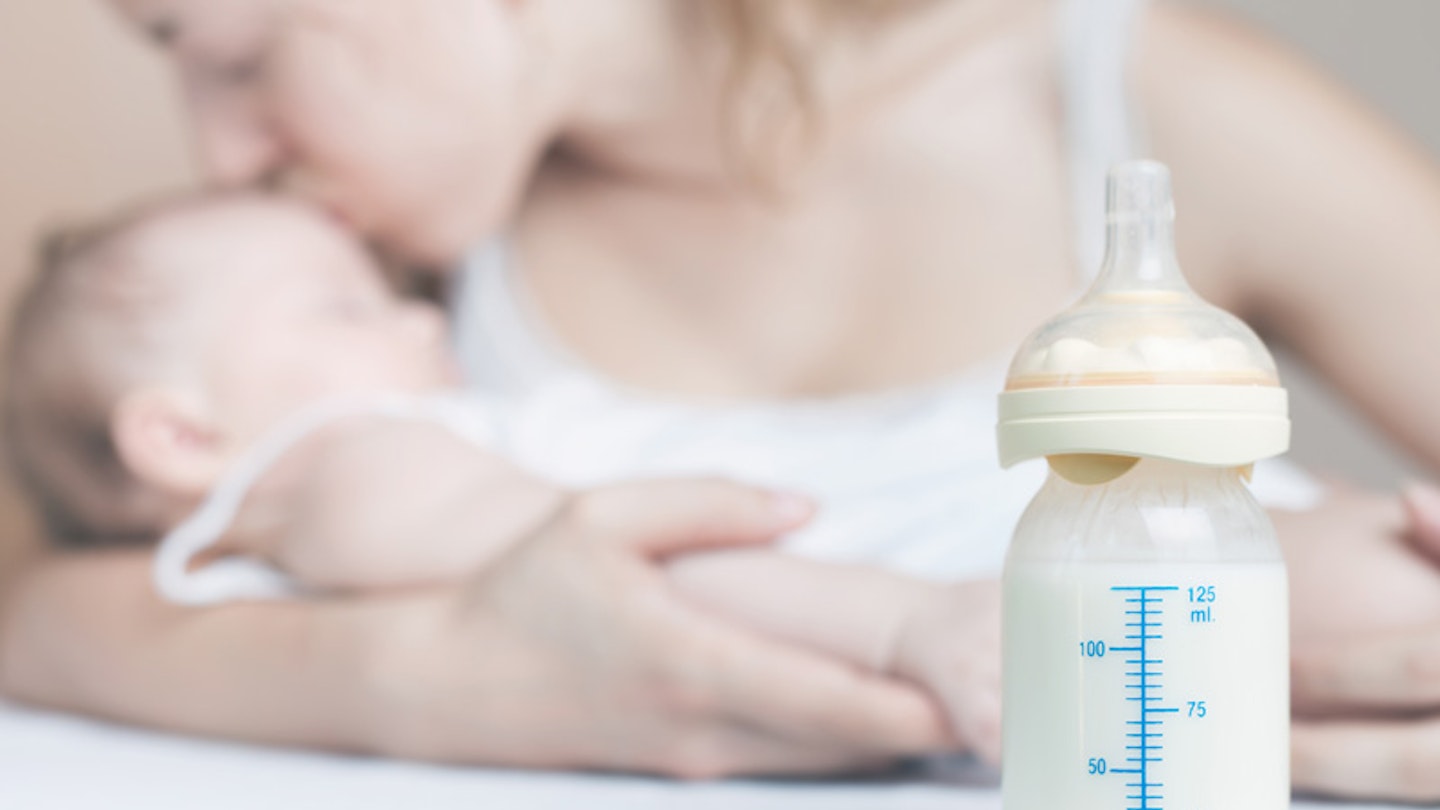Online sites for trading breastmilk first appeared in the US with women donating or selling breastmilk to parents struggling to feed their own babies. UK sites are now attracting thousands
of members too.
This trade operates in addition to established breastmilk donation banks. If you want to buy, sell or share breastmilk, you need to understand the differences between how these charitable banks and the online trade operate, and how that might affect your baby’s health.
The bank of breastmilk
A network of 15 regulated breastmilk banks collect milk donations through rigorous screening, testing and processing. ‘This milk is reserved for seriously ill or premature babies who need breastmilk to survive,’ explains Gillian Weaver, President of the European Milk Bank Association.
The unregulated online trade, meanwhile, can be accessed by anyone. For mothers looking either to acquire or to dispense excess breastmilk over the web, there are two choices: sites where milk is bought and sold, and volunteer-led networks, usually organised on social media, where milk is donated without payment.
Why would you buy breastmilk?
Some think that the Department of Health’s ‘breast is best’ campaign has fuelled the popularity of online sites, as it may make mothers struggling to breastfeed reluctant to use formula. And a statement from the World Health Organisation states: ‘The best food for any baby whose own mother’s milk is not available is the breastmilk of another healthy mother.’
Online traders claim what they’re doing is merely a modern method of an age-old practice. ‘The sharing of human milk has existed since the beginning of time,’ says Gillian. ‘Mothers have either breastfed children who were not biologically related to them as wet nurses, or given milk to a child other than their own.’
The market value of breastmilk
As the online trade is unregulated, it’s impossible to put a figure on how many mums are buying and selling breastmilk. But at the time of writing, Only the Breast’s UK site had 578 mothers advertising breastmilk for sale.
You can even refine your search to find gluten-free, vegan, or organic milk
The ‘product’ is broken down into the baby ages 0-2 months, 2-9 months, and 6-12 months. You can even refine your search to find gluten-free, vegan, or organic milk. Some mums offer to ship their expressed milk in zip-locked bags in a cooler. Others work locally, meeting their buyers. Prices vary, but it’s claimed milk is traded for up to £15 for four fluid ounces, with sellers potentially earning £13,000 a year.
However, at the time of writing, the four most recent classifieds posted on Only The Breast’s UK site weren’t from parents, but from men wanting to be breastfed by a lactating mother.
Sites that take cash out of the equation are increasingly popular. Human Milk 4 Human Babies operates through posts offering or requesting milk on its Facebook page. The UK page currently has over 8,000 likes. Its homepage states that it supports ‘communities where women graciously share their breastmilk’.
Potential risks of buying breastmilk
Breastmilk is classified as a food by the Food Standards Agency, so it isn’t regulated to the same extent as most bodily fluids and organs. A report published in the Journal of the Royal Society of Medicine noted that 93% of milk sold online contained bacteria.
Safety levels are a far cry from those in regulated breastmilk banks, where milk undergoes rigorous tests. ‘Milk banks carry out a screening before accepting donors,’ Gillian explains.
Once a donation is made, a sample is sent to a lab to be checked for bacteria
‘This includes a health questionnaire followed by blood tests for HIV, hepatitis B and C and syphilis.’ Once a donation is made, a sample is sent to a lab to be checked for bacteria. It is then pasteurised. ‘It’s handled, stored and transported in insulated containers to ensure bacteria can’t grow,’ adds Gillian.
So how dangerous could milk that hasn’t passed through this rigorous system really be to babies? ‘Harmful bacteria ingested in large quantities through breastmilk can lead to severe infections, including septicaemia,’ advises Gillian.
‘Viruses in breastmilk can also cause serious illnesses, some of them only manifesting years later. Then there’s the risk that shared milk may contain medications taken by the mother, as well as alcohol, nicotine, drugs and other contaminants.’
Only the Breast does inform both potential sellers and buyers of these risks. It also gives guidelines for expressing, handling and storing the milk, as well as advice on shipping, freezing and even home-pasteurising by heating to 145°F for 30 minutes in a stainless steel pan.
Would you buy or sell breastmilk?
At the end of the day, it’s up to you to weigh up the pros and cons. But Gillian states: ‘It isn’t practical for mothers at home to replicate all the safeguards that are in place in milk banks. Informal sharing of breastmilk presents health risks to the infants receiving the milk and also reduces the supply available for milk banks to provide to infants who really need it.’
For that reason, the European Milk Bank Association strongly discourages the online trade, encouraging mothers to donate surplus breastmilk to non-profit making milk banks instead.
But whatever decision you make, Gillian advises: ‘Before acting, first consult a qualified healthcare professional, like a GP, paediatrician or hospital infant-feeding specialist.’
